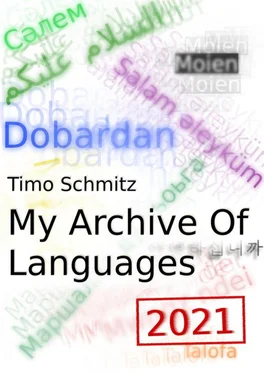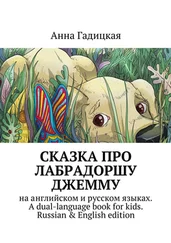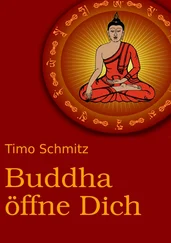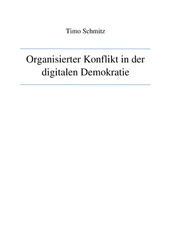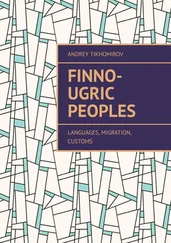Scripts: Perso-Arabic script, Latin (in the internet and on mobile devices if no Perso-Arabian script is available, modelled after Hanyu Pinyin)
Turkish (Turkey) – Türkçe
Hoş geldiniz – Welcome! (formal)
Hoş geldin – Welcome! (informal)
Merhaba – Hello
Selam – Hello (informal)
Günaydın – Good morning!
Tünaydın – Good afternoon!
İyi günler – Good day! (greeting)/ Good afternoon!
İyi akşamlar – Good evening!
Nasılsınız? – How are you? (formal)
Nasılsın? – How are you? (informal)
Naber? – How are you? (very informal)
İyiyim – I’m good, I’m fine
İyilik. – I’m fine
Kötü – bad
Kötüyüm – I’m (feeling) bad
Çok iyi değil. – Not very well
çok – much, very
az – little
iyi değil – not good
fena değil – not bad
değil – not, as negation of to be
Ingilizcem çok iyi değil – My English is not very good.
Bilmiyorum! – I don’t know!
Özür dilerim. – I am sorry!
Adınız ne? – What’s your name? (formal)
İsminiz nedir? – What’s your name? (formal)
Adın ne? – What’s your name? (informal)
İsmin ne? – What’s your name? (informal)
(Benim) adım ... – My name is …
İsmim ... – My name is…
Nerelisiniz? – Where are you from? (formal)
Nerelisin? – Where are you from? (informal)
...dan – I am from ...
Bu hafta sonu boş musun? – Are you free this weekend?
Teşekkürler – Thank you!
Sağol – Thank you!
Rica ederim – You are welcome!
Bir şey değil – You are welcome!
Lütfen – Please!
İyi geceler – Good night!
Hoşçakal – Goodbye!
Güle-Güle! – Bye!
Görüşürüz! – See you!
Evet – Yes
Hayır – no
Tanıştıǧımıza memnun oldum – Nice to meet you!
Memnun oldum – Nice to meet you!
Harika görünüyorsun. – You look great.
Seni özledim! – I miss you!
Seni çok özledim! – I miss you very much!
Seni seviyorum! – I love you!
Seni öpmek istiyorum! – I want to kiss you!
Sana sarılmak istiyorum! – I want to hug you!
Seni araycağım – I will call you.
Azerbaijani – Azərbaycanca
1 - Xoş gəlmişsiniz!
Xoş gəlmişsiniz! – Welcome!
Salam əleyküm – Hello!
Əleyküm salam – Hello! (Reply)
Necəsiz? – How are you? (polite)
Sən necəsən? – How are you? (to friends)
Yaxşıyam – i am fine
Sizin adınız nədir? – What’s your name? (polite)
Sənin adın nədir? – What’s your name?
Mənim adım ... – My name is…
hə – yes
eledir - this is so, that’s right
mənim .... yaşım var – I am ... years old
mən – I
mənim – my, mine
e.g. mənim itim – my dog
yaş – year
yaşım – my years
-ım, -im – suffixes showing the possession
Possesive pronouns
mənim – mine
sənin – yours
onun – his
onların – theirs
Suffixes: - im - ım - un -ın
Usage:The suffixes are added to the personal pronouns making them possesive pronouns.
If there is an ə, i, ü in the last syllable then -im is used, e.g. the word mən contains an ə so the ending has to be -im: mənim, but after a, o, u the ending is either -un or –ım
Sağ ol! - Thank you! (informal)
Sağ ol un! – Thank you (formal)
minnətdaram – I am grateful to you (most respectful)
Grammar note: the –m in the word minnətdaram already means “I am”, so there is no need to add mən in front of it!
Görüşərik! – See you!
2- Çox maraqlı məktub yazıbsan
Təzə nə xəbər var? – Are there any news?, Is there any news?
təzə – new
nə – what
xəbər – news
Xəbər varmı? – Are there any news
var – there is/ are
-mı – is there? (question particle)
Sən dünən nə etmisən? – What did you do yesterday?
sən – you (informal)
dünən – yesterday
nə – what?
etmək – to do
Həftəsonunu necə keçir misən? – How was your weekend?
həftə – week
son – end
həftəsonu – weekend
necə – how
-mi – past suffix
Bu gün çox məşğulam – I am very busy today
bu – this
gün – day
bugün – today
çox – very
məşğul olmaq – to be busy, məşğula m– I ambusy
(I is shown at the last suffix -m, this -m means mən)
olmaq – to be
such as in: məşğul olmaq – to be busy, xəstə olmaq – to be sick, evdə olmaq – to be home
Hava necədir? – What’s the weather like?, How is the weather?
hava – weather
Possible replies:
günəşli – sunny (günəş – sun)
yağışlı – rainy (yağış – rain)
soyuq – cold
bu gün isti dir– It iswarm today (isti – warm)
soyuq dur– It iscold
qar yağır – it is snowing (qar – snow)
Conjugating the verb ‘to do’ (etmək)
mən etmişəm
sən etmisən
o edib
biz etmişik
siz etmişsiniz
onlar ediblər
Çox maraqlı məktub yazıbsan – You wrote a very interesting message/ letter
Keçək suallarına – Let’s move on to your questions
keçək – let’s move
sual – question
lar – plural suffix
suallar – questions
-ına (sənin) – yours
suallarına – your questions
3- Bu dəfə sən Azərbaycan dilindən çox az şey soruşdun
Bu dəfə sən Azərbaycan dilindən çox az şey soruşdun – This time you asked very little about Azerbaijani language
bu – this
dəfə – time
sən – you
-dən – from
çox – very
az – little
O nə vaxt gələcək? – At what time he will come?
o – he
vaxt – time
gəlmək – come
gələcək – will come
Conjugation of the verb ‘to come’ (gəlmək)
mən gəl əcəm
sən gəl əcəksən
o gəl əcək
biz gəl əcəyik
siz gələ cəksiniz
onlar gəl əcəklər
Axırıncı mailimi oxuyubsan? – Have you read my last E-mail?
axırıncı – last
oxuyubsan – have read
oxu – read
oxumaq – to read
məktub – letter
mesaj – message
4 – Ümid edirəm ki hər şey yaxşıdır
Ümid edirəm ki hər şey yaxşıdır - I hope that everthing is okay!
ümid – hope
ümid etmək – to hope (literally: do hope)
ki – that
hər – every
şey – thing
hər şey – everything
yaxşı – good
-dır – is
yaxşıdır – is good
... hardan tapa bilərəm? – Where can I find...?
harda – where from
tap – find
tapmaq – to find
bilmək – can, know
Mən hər şeyi bilirəm – I know everything.
In this case “bilmək” means “to know”.
Neçəyədir? – How much costs?
neçə – how much
Be careful, if it is written neçə it means ‘how much’, but if it is written necə it means ‘how’!
pomidor – tomato
By adding -lar, one can build the plural, pomidorlar – tomatoes
kartoflar – potatoes
salat – lettuce
çiyələk – strawberrys no plural
limonlar – lemons
portağal – oranges
Читать дальше
